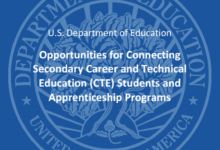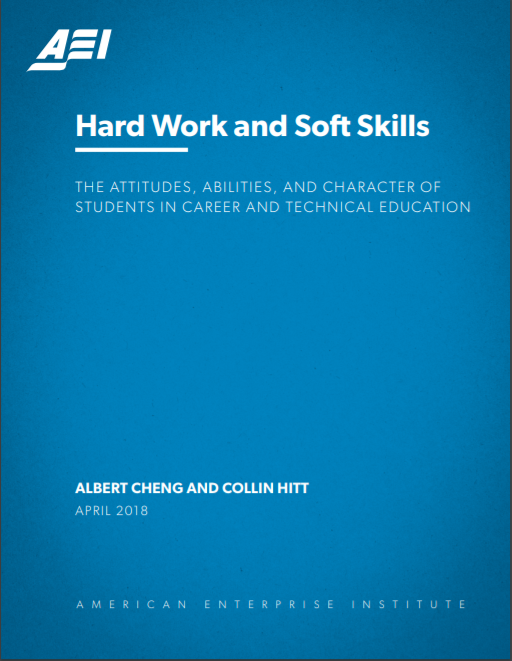This report from the American Enterprise Institute draws on data from the US Department of Education’s Educational Longitudinal Study of 2002 to examine the noncognitive skills of CTE students in traditional comprehensive high schools and stand-alone vocational-technical schools. Major findings from the report include:
- CTE course takers have on average higher noncognitive skills, compared to otherwise-similar students they exhibit more effort on routine tasks compared to their peers, are just as attentive as their peers, are just as likely to complete their homework, and are much less likely to be absent from class.
- Students at traditional comprehensive high schools with lower test scores in math and reading are more likely to take large numbers of CTE courses, and students who attend vocational-technical schools also have test scores lower than the traditional high school students who take few to zero CTE courses.
- However, CTE course takers are less likely to drop out of high school and on average have higher annual earnings by their mid-20s, as compared to students who take few or zero CTE courses.
- Students at vocational-technical schools are more likely to be employed full time by young adulthood and, hence, appear to have higher annual earnings, compared to traditional high school students.
This report illustrates the benefits of CTE and combats the narrative that students in CTE are unmotivated, uninterested in learning and unfocused.






